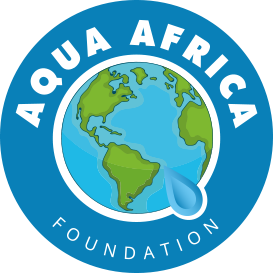Congolese President Félix Tshisekedi, as president of the African Union. made clear at the virtual Leaders Summit on Climate this week, that all the new emissions-cutting pledges from rich countries were not enough.
“It is important that this summit accelerates the mobilization of additional and substantial financial resources,” said Tshisekedi. “It also requires simplifying procedures for accessing climate finance for the least developed countries, the majority of which are in Africa. In this regard, I would like to reiterate the importance of the commitment of developed countries to mobilize $100 billion a year from 2020 and to raise it by 2025.”
Tshisekedi pointed out that when the developed countries’ unfulfilled promises, they focused on the core challenges of the summit.
US President Joe Biden promised to provide poor countries with only US$5.7 billion in meager funds each year by 2024: Continents, where the warming contribution is small, have suffered the most. However, if the world only listens to Africa, there are still many lessons in the world about how Africa responds to the climate crisis. Although Africa’s population accounts for 15% of the world’s population, it only accounts for 4% of global carbon emissions. According to data from the Climate and Energy Solutions Center, none of the seven countries that emit two-thirds of greenhouse gases in the world is African. At the same time, Africa is facing droughts, floods, declining agricultural productivity, deforestation, difficulty in obtaining water, rising sea levels, continuous desert development, and the outflow of the rural population.
According to a survey conducted by the United Nations Environment Programme, a temperature increase of 2 degrees Celsius will reduce agricultural yields in sub-Saharan Africa by 10%. If the warming exceeds 3 degrees, the climate will not be suitable for growing corn, millet, and sorghum throughout the African continent. While Western countries seek to reduce their carbon footprint, African people are already at the forefront of tackling climate change. Around Lake Chad, which lost 90% of its surface area in the 1970s and 1980s, nearly 5 million climate refugees migrated from Nigeria, Niger, Chad, and Cameroon, and they were also under another threat: Boko Haram. From the 1997 Kyoto Protocol to the 2016 Paris Agreement (COP21), most African countries have ratified environmental treaties. Propaganda campaigns are increasing exponentially, including the African Union’s 2063 Agenda, conservation funds such as the Blue Fund, the African Development Bank’s “Desert Power Generation” project or the Great Wall Green Tree Project.
From Burkina Faso, where the largest solar power plant in West Africa is located, to President McKee Sol’s “Green Emerging Senegal Plan”, to Ethiopia, Ethiopia will extract 93% of its electricity from renewable energy sources.
Governments are adopting action. As far as Nigeria is concerned, the goal is to achieve 30% clean energy within ten years. As Africa’s renewable energy potential remains unparalleled, the continent is most likely to combine industrialization with decarbonized growth. Seven of the ten sunniest countries in the world are in Africa, which is a huge wealth of solar energy. Africa has 10% of the global hydropower potential. Even its weakness can be turned into an asset: 600 million Africans lack electricity, so the continent can rely on abundant renewable energy. Under the leadership of the African Union, the goal of the African Renewable Energy Program is to achieve 300 gigawatts of power generation by 2030, thanks to Africa’s huge capacity for renewable energy.
To take advantage of Africa’s climate for development requires huge investment (according to the United Nations, by 2050, an investment of 50 billion US dollars per year) and the transfer of technology and expertise. However, as Tsisekedi pointed out, the rich countries have not kept their promises, and the pandemic has exhausted the budgets of African countries and made the situation worse. At the next meeting of the Group of Seven (G7) or Group of Twenty (G20) and the United Nations Climate Change Conference (COP26) to be held in Scotland this fall, more attention will need to be paid to this issue. The key to change may be more consideration of African solutions. For Africans, climate change is not a threat, but a reality. They can provide solutions, including ancestral and innovative solutions, to inspire other parts of the world.
The ancestor’s solution comes from agroecology based on traditional knowledge for centuries. The philosopher Mohammed Taleb made it clear that fighting for the environment is above all a social and cultural struggle to defend the land inherited by our ancestors, not just an effort to maintain a reserve of resources. This is also rooted in the struggle of the working class. In the 1980s, President Thomas Sankara’s Burkina Faso was a symbol of African ecology. Since the colonial period, the waste sector has always existed in Africa. It is a new lever for economic and social development and a pillar of a new circular economy. This African cosmology was destroyed by colonization, and its purpose was to “explore” the underdeveloped land of the African population. Innovative solutions come from the ecological expertise of Africans in the digital economy era. He fought universally against global warming.
The challenge here is not only African. But Africa faces the most urgency to tackle the problem.
with information from: https://www.atlanticcouncil.org/blogs/africasource/climate-change-will-not-be-fixed-without-africa/


